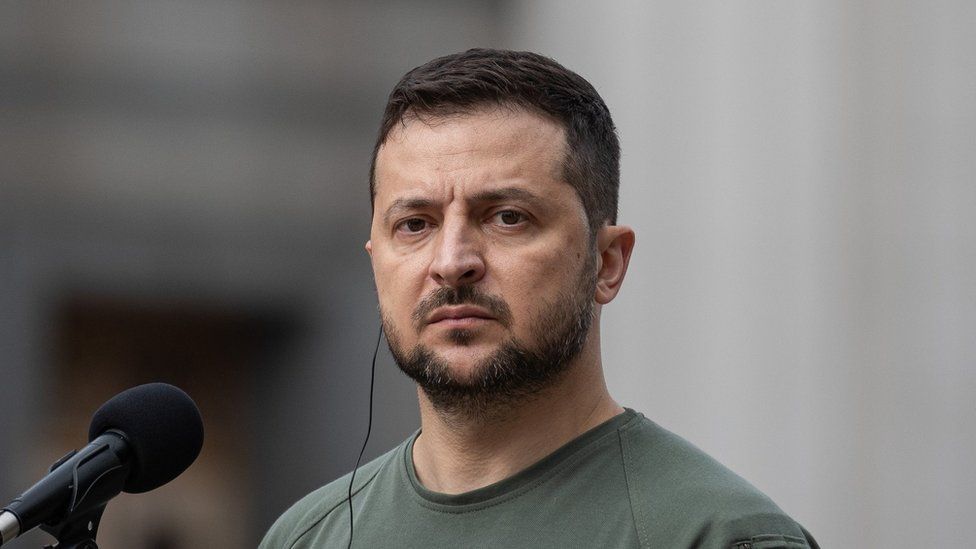According to Ukrainian President Volodymyr Zelensky, Russian soldiers who surrender to Ukraine will be treated “civilizedly.”
Mr. Zelensky urged Russians to flee the front or surrender in his nightly address.
It follows the passage of a law by Vladimir Putin that doubles the penalty for Russian soldiers who desert or defy orders.
According to the Russian human rights organization OVD-Info, over 1,000 people were detained earlier in the week, and 700 were arrested on Saturday. Russian law forbids unapproved demonstrations.
In his native language of Russian, Mr. Zelensky urged Russians to surrender to Ukraine rather than run the risk of facing a war crimes trial after the conflict.
He stated that Ukraine will treat deserters in accordance with international conventions and will not return anyone to Russia if they are afraid of repercussions.
“It is better to surrender to Ukrainian captivity than to be killed by our weapons strikes,” he added.
On Saturday, President Putin signed legislation that punishes Russians who desert, refuse to fight, disobey orders, or surrender with ten years in prison.
The Russian president’s moves are widely interpreted as an attempt to retake the initiative after his forces suffered setbacks on the battlefield.

Four Ukrainian regions—Luhansk, Donetsk, Kherson, and Zaporizhzhia—continue to hold self-declared referendums on joining Russia.
Ukraine and the West have denounced the votes as being undemocratic, and there have been numerous reports of armed Russian soldiers intimidating locals into casting their ballots.
With the votes, Russia would be able to annex the four regions.
Sergei Lavrov, Mr. Putin’s top diplomat, declared that any regions that choose to join Russia will be fully protected by it and subject to all Russian laws and doctrines.
Even though annexation would not be accepted internationally, it might cause Russia to claim that its territory is being attacked by Western forces who are arming Ukraine, thus intensifying the conflict.
Some Russians rushed to the border in an effort to avoid conscription as a result of the partial mobilization.
Estonia, Latvia, and Lithuania have closed their borders to most Russians, stating that they will not automatically grant asylum to those fleeing the draft.
The Baltic News Service quoted Estonian Interior Minister Lauri Laanemets as saying that the invasion of Ukraine was the “collective responsibility of Russian citizens” and that refusing entry to Russians would “increase discontent” in Russia.








